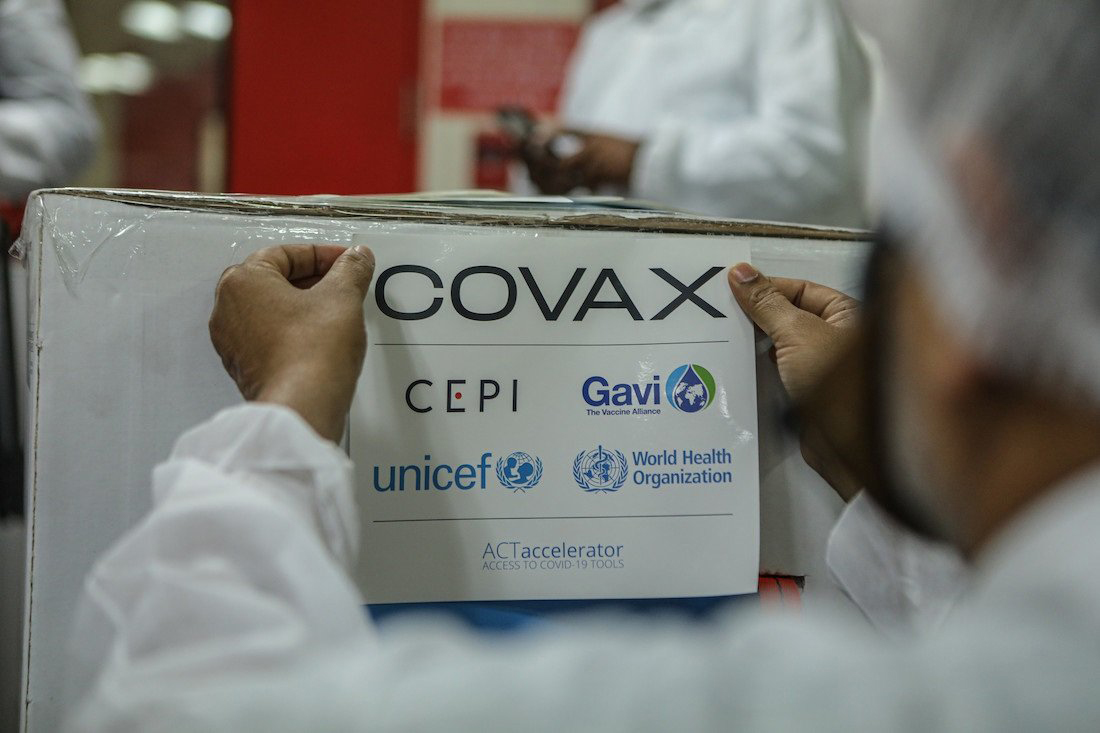
Feature
Get to know Vaccine Equity: The main principle of prioritizing vaccination groups
Ardiani Hanifa Audwina • 2 Okt 2021
Now, the world is entering a new phase in which handling a pandemic is no longer about finding the most effective vaccine, but increasing the scale of its production and distribution. The World Health Organization (WHO) has included four types of vaccines in the emergency use listing, namely vaccines made by Pfizer-BioNTech, Moderna, AstraZeneca-Oxford and Janssen. A number of countries have also granted emergency use permits to several vaccines that have proven their efficacy based on phase three clinical trials, such as vaccines made by Gamaleya, Sinopharm, Sinovac, Bharat Biotech, and Vector Institute.However, the problem that is arising now is that the number of the stocks is very limited.
Therefore, it enforces the world for vaccine equity which determines who has the right to be prioritized in the vaccination program. In contrast to equality which gives the same amount to each country, vaccine equity means a fair distribution of vaccines in all countries with the most at-risk groups as the top priority.The basis of this principle is that each country has different resources that it requires assistance to different degrees. There are countries that have the ability to get vaccines earlier while there are countries that have difficulty getting vaccines.
Since its inception, WHO has predicted the emergence of gaps in vaccine availability between countries. All countries are racing to secure as many doses of the Covid-19 vaccine as possible. As of March 23, 2021, the United States, China and India are the top three countries in vaccine distribution and have injected 128 million, 82 million and 50 million doses of vaccine respectively while, at the same time, many countries have yet to inject a single dose of vaccine. This prompted WHO to form the COVAX Facility to ensure vaccine equity at the global level is achieved.
Vaccine Equity is Vital
On the other hand, vaccine equity must not only be applied at the global level, but also at the national level of each country. Based on WHO's Strategic Advisory Group of Experts on Immunization (SAGE) framework, national equity aims to ensure country vaccine priorities are made based on considerations of vulnerability, risk, and the needs of groups at risk of experiencing a greater burden during the Covid-19 pandemic.
SAGE also recommends prioritizing the group that should get the vaccine at each stage of vaccination. In the first phase, when the available vaccine is less than 10 percent of the country's population, the groups that must be prioritized are frontline health workers and the elderly.
The second stage, when vaccine administration is between 11-20 percent of the total population, vaccines are given to people with comorbidities, with a higher risk of community transmission, health workers involved in the release process, and teachers. The third stage, when vaccine stocks are between 21-50 percent, then other essential workers and the general public carry out the program.
These priorities are set to reduce morbidity and mortality due to Covid-19 in limited vaccine conditions. Thus, vaccines can be used to suppress economic and social disruption that occurs and protect other important health care functions. Then, has Indonesia used the principle of vaccine equity?
The Gotong Royong Vaccinations
The Indonesian government has actually set vaccine priorities according to WHO SAGE recommendations and divided the vaccination program into four stages. However, to accelerate the achievement of herd immunity, the government issued an independent vaccination policy.
The Gotong Royong Vaccination program was created to facilitate companies in Indonesia who want to provide vaccines more quickly to employees and their families. The cost of the vaccine is fully borne by the company, while the procurement of the vaccine is still carried out by Bio Farma and the BPOM guarantees its quality.
However, this decision was opposed by epidemiologists and civil society organizations because it was considered to violate the principle of vaccine equity. Also, it would not accelerate the attainment of herd immunity or reduce morbidity and mortality as it was given to the wrong group. Vaccines that have been and will be available in Indonesia are still limited and not sufficient to meet national vaccination needs. Therefore, all imported vaccines should be given according to priority.
Indonesia happens to be one of the countries that allow the private sector to participate in vaccination programs, other than India, Pakistan and Thailand. India has the ability to produce vaccines in large quantities but has been slow to provide vaccinations through the hospital government. So, the government has issued private hospitals to sell the Covid-19 vaccine to the public. Meanwhile, in Pakistan and Thailand, the government has the authority to allow private companies to apply the Covid-19 vaccine to be sold to people who can afford it. In these countries, policies involving the private sector have also drawn criticism.
The Sars-CoV-2 virus is highly contagious. Therefore, keep in mind that no person or country is truly safe until everyone is safe. Vaccine distribution at global and national levels needs to follow the principle of vaccine equity and prioritize the groups at risk. Policies that conflict with these principles will hamper efforts to eradicate Covid-19.
.png)